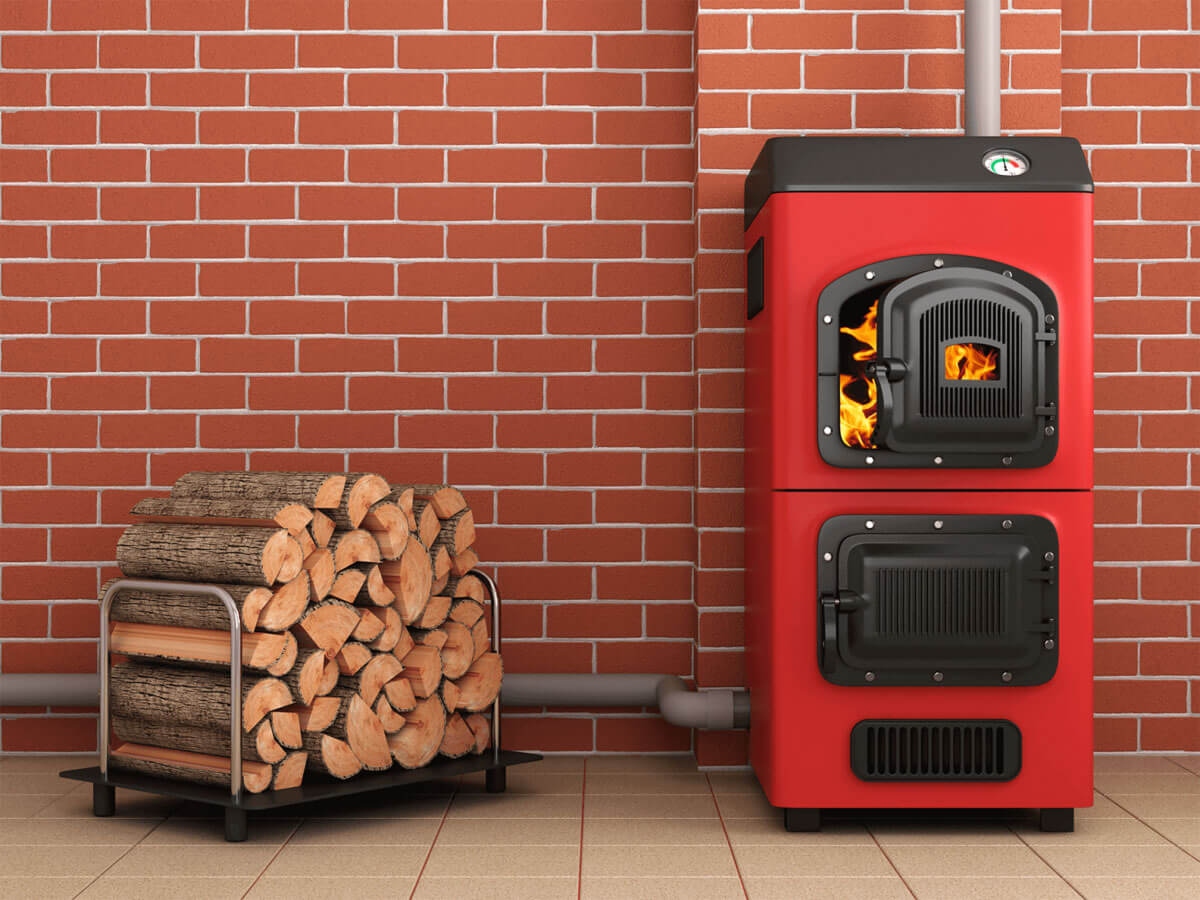Comments
- No comments found

In recent years, the global focus on sustainability and environmental responsibility has driven significant advancements in renewable energy technologies.
One of the key players in this arena is biomass energy, which harnesses the power of organic materials like wood, agricultural residues, and waste to generate heat and electricity. Within the realm of biomass energy, biomass boilers play a crucial role in converting biomass into usable energy. However, the efficiency of biomass boilers has historically been a concern, leading to advancements in cutting-edge technology to optimize their performance. In this article, we'll delve into the world of biomass boilers, explore the challenges they face, and discuss how innovative technologies are transforming their efficiency.
Implementing a robust Data Recording and Information System (DRIS) is paramount in today's data-driven landscape. DRIS serves as the backbone for organizations to collect, store, analyze, and utilize data effectively. By integrating advanced technologies such as cloud computing, big data analytics, and artificial intelligence, Innasol Data Recording and Information System enables real-time data recording, processing, and reporting across various departments and functions. This streamlined approach enhances decision-making processes, facilitates data-driven insights, and improves overall operational efficiency.
Moreover, DRIS plays a crucial role in ensuring data accuracy, integrity, and security, mitigating risks associated with data breaches and compliance violations. Through seamless integration with existing systems and continuous monitoring and optimization, organizations can harness the full potential of their data assets to drive innovation, optimize resource allocation, and stay competitive in today's dynamic business landscape.
Biomass boilers are heating systems that use organic materials as fuel to generate heat or electricity. These organic materials, known as biomass feedstocks, can include wood chips, sawdust, agricultural residues, and even energy crops like miscanthus and switchgrass. The combustion of biomass releases energy in the form of heat, which can be used for various applications such as heating buildings, producing steam for industrial processes, or generating electricity through steam turbines.
One of the key advantages of biomass boilers is their renewable nature. Unlike fossil fuels such as coal, oil, and natural gas, biomass is derived from plants and other organic matter that can be replenished through sustainable forestry practices, agricultural waste management, and dedicated energy crop cultivation. This renewable characteristic makes biomass a promising alternative to traditional fossil fuels, contributing to reductions in greenhouse gas emissions and mitigating climate change.
While biomass boilers offer several environmental benefits, they also face challenges that can impact their efficiency and overall performance. One of the primary challenges is the variability of biomass feedstocks. Unlike conventional fuels with consistent properties, biomass feedstocks can vary widely in moisture content, calorific value, and chemical composition. These variations can affect combustion efficiency, heat transfer rates, and overall boiler operation.
Moisture content is a critical factor influencing biomass combustion. High moisture levels in biomass can result in incomplete combustion, increased emissions, and reduced thermal efficiency. Managing moisture content through proper storage, handling, and pre-treatment techniques is essential for optimizing combustion efficiency and minimizing environmental impacts.
Another challenge is the formation of ash and slag during biomass combustion. Ash content in biomass can vary depending on the feedstock and combustion conditions. Excessive ash accumulation can lead to fouling and slagging in the boiler, reducing heat transfer efficiency and increasing maintenance requirements. Advanced boiler designs and combustion technologies are being developed to address these challenges and improve overall system performance.
Furthermore, biomass boilers must meet stringent emissions standards to ensure environmental compliance. Emissions of particulate matter, nitrogen oxides (NOx), sulfur dioxide (SO2), and carbon monoxide (CO) are regulated to minimize air pollution and protect public health. Innovative emission control technologies such as electrostatic precipitators, selective catalytic reduction (SCR) systems, and flue gas scrubbers are integrated into modern biomass boilers to achieve lower emissions and meet regulatory requirements.
The quest for improved biomass boiler efficiency has spurred the development of cutting-edge technologies aimed at overcoming the aforementioned challenges. These technologies encompass a wide range of innovations, from biomass pre-processing and combustion optimization to advanced control systems and emissions reduction techniques.
Effective pre-processing of biomass feedstocks is crucial for enhancing combustion efficiency and overall system performance. Pre-processing techniques such as drying, size reduction, and densification are employed to improve fuel quality, reduce moisture content, and increase energy density. For instance, drying biomass to optimal moisture levels before combustion can significantly enhance combustion efficiency and reduce emissions.
Additionally, biomass can be pelletized or briquettes to form densified fuel products with standardized properties. Pelletization involves compressing biomass into small pellets, while briquetting produces densified fuel blocks. These densified fuels offer several advantages, including higher energy content, improved handling and storage characteristics, and consistent combustion performance. Advanced pelletizing and briquetting technologies are continuously evolving to produce high-quality biomass fuels for efficient boiler operation.
Optimizing the combustion process is paramount for maximizing energy extraction from biomass and minimizing emissions. Advanced combustion technologies such as fluidized bed combustion, gasification, and pyrolysis are employed to achieve efficient and clean biomass combustion.
Fluidized bed combustion (FBC) is a combustion technique that suspends biomass particles in a bed of inert material (e.g., sand) and introduces air or oxygen for combustion. FBC offers enhanced heat transfer, reduced emissions, and fuel flexibility compared to conventional grate firing systems. Gasification and pyrolysis technologies convert biomass into syngas or bio-oil through thermochemical processes, which can then be used for heat and power generation in advanced gas turbines or internal combustion engines.
Moreover, intelligent control systems and automation technologies play a crucial role in optimizing boiler performance. Real-time monitoring of key parameters such as fuel feed rate, air-to-fuel ratio, combustion temperature, and emissions enables dynamic control adjustments to maintain optimal operating conditions and energy efficiency.
Addressing emissions from biomass combustion is essential for environmental sustainability and regulatory compliance. Advanced emission control technologies are integrated into biomass boilers to mitigate air pollutants and minimize environmental impact.
Electrostatic precipitators (ESPs) are widely used for particulate matter removal by charging and collecting particles through electrostatic forces. Selective catalytic reduction (SCR) systems utilize catalysts to convert nitrogen oxides (NOx) into harmless nitrogen and water vapor, reducing NOx emissions significantly. Flue gas desulfurization (FGD) systems remove sulfur dioxide (SO2) from flue gases through chemical reactions, ensuring compliance with emissions standards.
Furthermore, continuous research and development efforts are focused on developing novel catalysts, sorbents, and filtration media to enhance emission control efficiency and reduce operating costs for biomass boiler operators.
Looking ahead, the future of biomass boiler technology holds immense promise for further advancements in efficiency, sustainability, and cost-effectiveness. Emerging trends such as integrated biorefineries, co-firing with hydrogen or synthetic fuels, and advanced thermal energy storage systems are poised to revolutionize the biomass energy landscape.
Integrated biorefineries combine biomass conversion processes to produce a range of valuable products beyond heat and power, including biofuels, biochemicals, and bioplastics. This holistic approach enhances resource utilization and economic viability, paving the way for a bio-based circular economy.

In conclusion, the evolution of biomass boiler technology epitomizes the remarkable progress made in renewable energy innovation. The journey from traditional biomass combustion to cutting-edge efficiency optimization has been fueled by a shared commitment to sustainability and environmental stewardship. Through a combination of biomass pre-processing, combustion optimization, emissions reduction, and advanced control systems, biomass boilers have undergone a profound transformation.
The challenges of biomass variability, moisture content management, ash formation, and emissions control have been met with ingenuity and engineering prowess. Technologies such as fluidized bed combustion, gasification, selective catalytic reduction, and electrostatic precipitators have become integral components of modern biomass boilers, enabling higher efficiencies, lower emissions, and improved operational reliability.
Leave your comments
Post comment as a guest